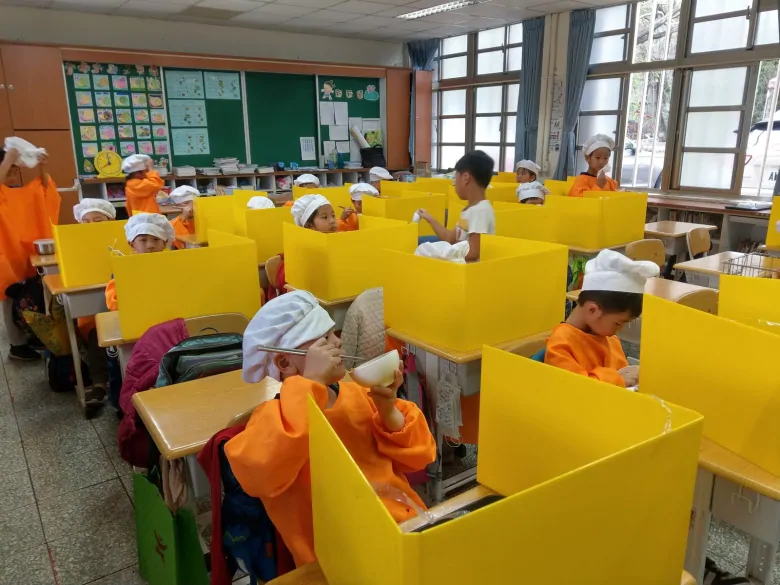Taiwan and Canada had their first cases of coronavirus at about the same time, but their experiences have been different. Taiwanese children are still in school, and there’s no shortage of supplies.
Both Taiwan and Canada reported their first presumptive cases of COVID-19 within days of each other, but their experience of life with the pandemic has been quite different. Children in Taiwan are still in school, restaurants are open and there’s no shortage of protective supplies. Watch what Canada can learn from Taiwan’s approach to fight the spread of the coronavirus. 5:42
It’s almost life as usual for the Lin family of Taiwan during the coronavirus pandemic — with a few noticeable exceptions.
“We didn’t worry too much,” said Leeli Chang, who lives with her husband, Terry Lin, and her daughter, Peggy, 8, in a suburb of Taipei.
The family, like many in Taiwan, has continued to go to work, to school and out shopping as normal since the COVID-19 pandemic began, but now with some precautions in place — such as regular temperature checks and hand sanitizer dispensers outside most public buildings and protective masks.
Taiwan was hit hard by the SARS pandemic in 2003, but this time, the government took swift and early actions when it first became aware of an unknown pneumonia in Wuhan, China.
By mid-February, the territory had increased its mask and alcoholic sanitizer production, introduced fines for raising the price of medical supplies and set cleaning standards for public transportation and other areas, such as trains and schools.

Both Canada and Taiwan reported their first presumptive cases of coronavirus within days of each other in January, but by March, they had diverged sharply in the number of infections reported.
As of March 21, there were only 153 confirmed cases and two deaths in Taiwan, an island with 23 million people that’s only slightly bigger than Vancouver Island. That’s far fewer than Canada’s more than 1,000 confirmed cases and 12 deaths.
It’s shaping up to be a different experience for families in Taiwan compared to their Canadian counterparts.
“I think that every time we watch the news, it gives us the confidence, like, ‘You don’t need to worry too much,'” said Chang when asked about whether she and her family are concerned about the virus.

In Canada, one family is trying to keep fears at bay.
“We’re really working hard to keep that out of the home.” said Louise Gleeson, when asked a similar question about her family’s level of anxiety over the virus.
“As a parent, I’m really trying to stay grounded, because if I let myself go too far ahead in my thinking, I do feel the anxiety creep up.”
Gleeson lives with her husband and four children, ages 9, 13, 15 and 17, in Oakville, Ont.
How to keep kids safe in school during the pandemic
The school situations in Taiwan and Canada have been very different. After an additional two weeks off during winter break, schools reopened in Taiwan.
But every morning, Chang says she and her husband take their daughter’s temperature and report it to her school before she goes. Their daughter, like all the kids, wears a mask all day — except at lunch. At lunch, when she takes off her mask, she is protected from infection by a plastic barrier that sits atop her desk and helps separate her from other students.
“We have protective barriers for everyone,” said Chang, “During mealtime, they take it out to eat their lunch.”

Chang says her daughter’s school was one of the first in Taipei to introduce the dividers. “The school also teaches them how to wash their hands, every day.” said Chang.
Those measures have been in place since February, well before Canadian provinces closed schools.
In Canada, kids are home from school across the country. Ontario extended its March break by two weeks, and the governments in Alberta, Saskatchewan, Newfoundland and British Columbia have cancelled classes indefinitely.
That means finding a way to keep the children busy. For Gleeson, assigning her kids one chore a day has helped. She has them reorganizing kitchen cupboards, washing and vacuu

